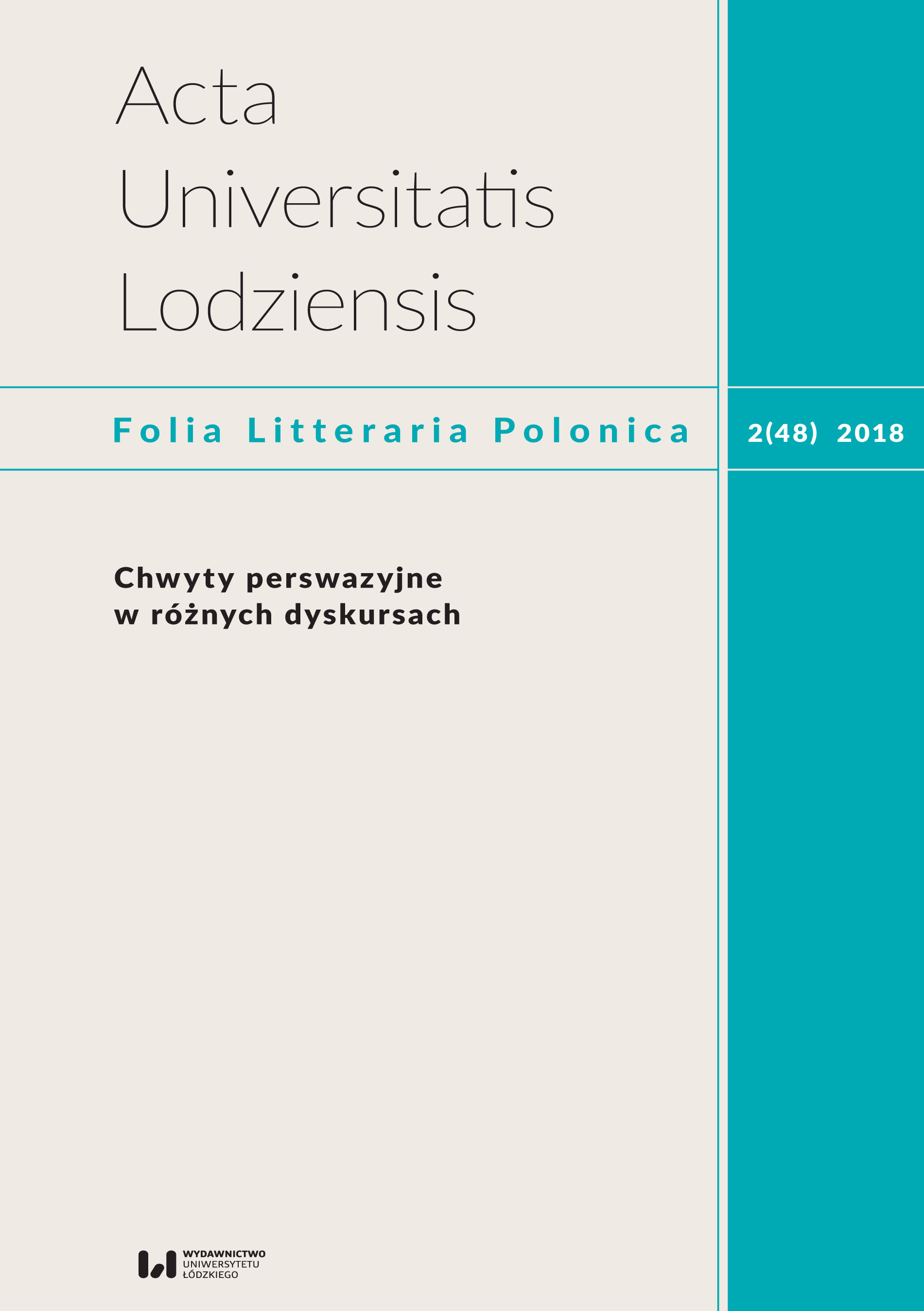„I Love You” as a Performative
DOI:
https://doi.org/10.18778/1505-9057.48.21Keywords:
performative act, language in action, emotions in language, expressing feelingsAbstract
The phrase “I love you” is usually associated with a description of the sender’s sentiment. As something that talks about the emotional state of the speaker. However, this is not always the case. There are cases of using this phrase that do not serve cognitive function, when “I love you” does not “inform” about the sender’s feelings state. These words have in these cases the driving force, they are the action. The formulation which is “the doing of a certain action”, John L. Austin calls a “performative utterance,” or a “performative”. “I love you” seems to meet the conditions for such classification in at least three cases, i.e. when this sentence is pronounced to create a relationship (this is usually its first formulation by the sender and the receiver, although the time elapsed between the two statements may be long). Second, when we have the situation of renewing such a commitment – to be in a relationship and take actions for its benefits. And finally, when other forms of showing love are impossible for a variety of reasons.
Downloads
References
Austin J.L., Jak działać słowami [w:] J.L. Austin, Mówienie i poznawanie, przeł., wstępem i przypisami opatrzył oraz skorowidz sporządził B. Chwedeńczuk, Warszawa 1993, s. 545–708.
Google Scholar
Awdiejew A., Habrajska G., Wprowadzenie do gramatyki komunikacyjnej, t. 2, Łask 2006.
Google Scholar
Data K., W jaki sposób językoznawcy opisują emocje, „Język a Kultura”, t. 14: Uczucia w języku i w tekście, red. I. Nowakowska-Kempna, A. Dąbrowska, J. Anusiewicz, Wrocław 2000, s. 245–252.
Google Scholar
Doroszewski, W., Język, myślenie, działanie. Rozważania językoznawcy, Warszawa 1982.
Google Scholar
Duszak A., Pawlak N., Anatomia gniewu. Emocje negatywne w językach i kulturach świata, Warszawa 2003.
Google Scholar
Goleman D., Inteligencja emocjonalna, przeł. A. Jankowski, Poznań 1997.
Google Scholar
Grabias, S., O ekspresywności języka: ekspresja a słowotwórstwo, Lublin 1981.
Google Scholar
Nowakowska-Kempna I., Konceptualizacja uczuć w języku polskim. Część II. Data, Warszawa 2000.
Google Scholar
Rusbult C.E., Johnson D.J., Morrow G.D., Impact of Couple Patterns of Problem Solving on Distress and Nondistress in Dating Relationships, „Journal of Personality and Social Psychology” 1986, vol. 50, no. 4, s. 744–753.
Google Scholar
Shakespeare W., Romeo i Julia, [w:] W. Shakespeare, Romeo i Julia. Hamlet. Makbet, przeł. S. Barańczak, Kraków 2006.
Google Scholar
Sternberg R.J., A Triangular Theory of Love, „Psychological Review” 1986, no. 93(2), s. 119–135.
Google Scholar
Wojciszke B., Psychologia miłości, Gdańsk 2003.
Google Scholar
Downloads
Published
How to Cite
Issue
Section
License

This work is licensed under a Creative Commons Attribution-NonCommercial-NoDerivatives 4.0 International License.











